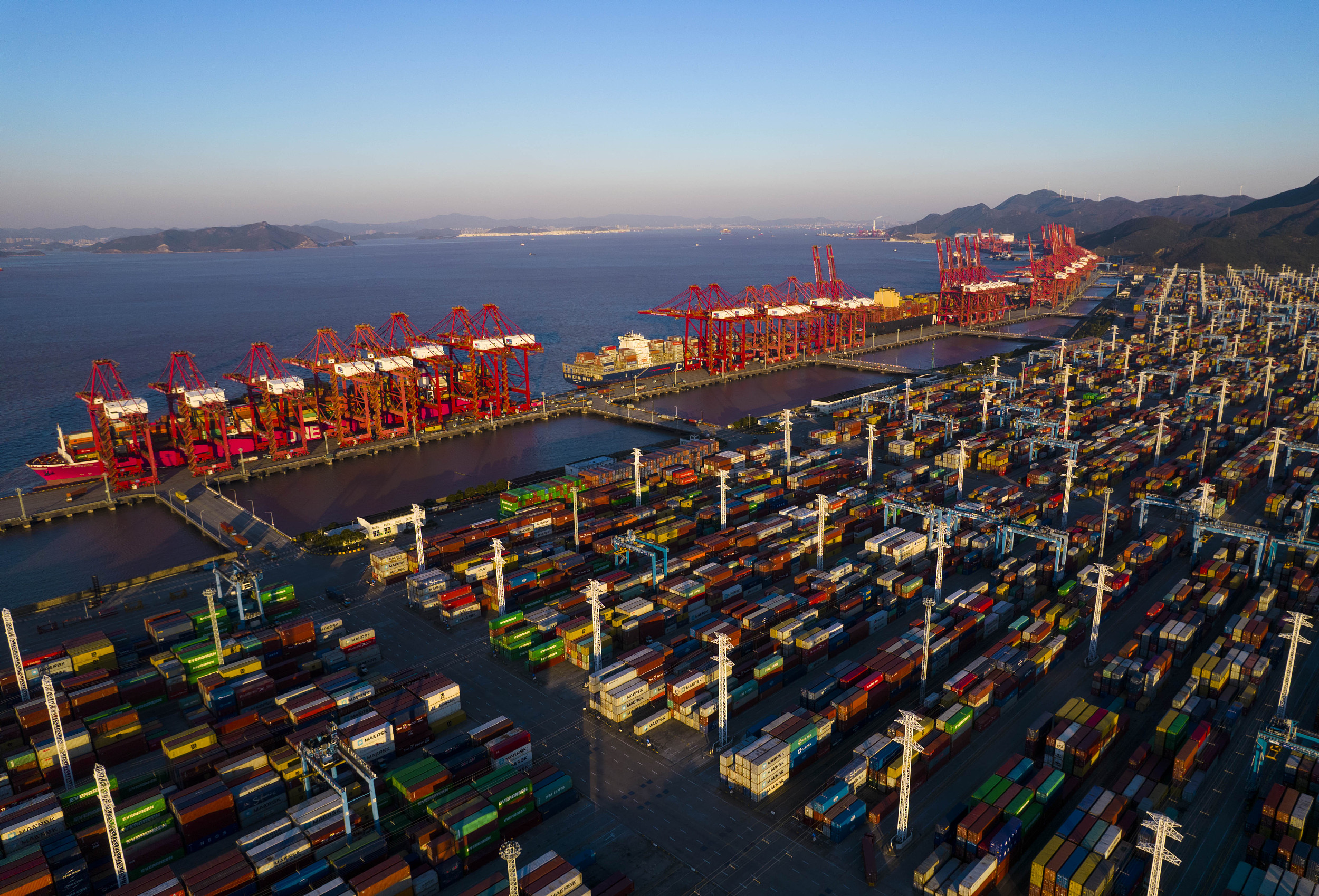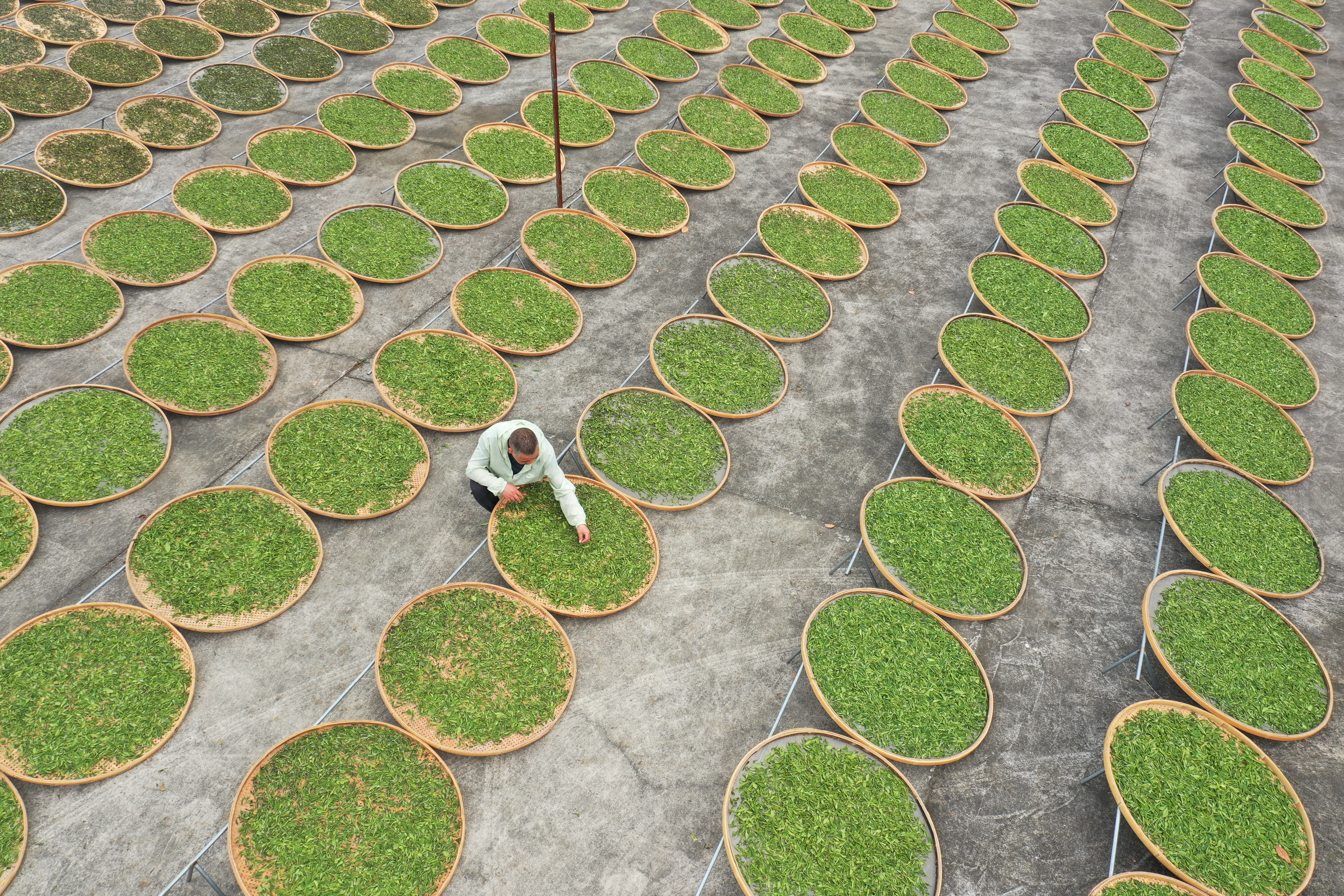China's Crucial Role in Global Recovery

Ningbo Zhoushan port, in China's east Zhejiang province, plays an important role in the building of the Belt and Road. (PHOTO: VCG)
By Dr. Hassan Daud Butt
No other year has started with as many challenges as 2023 and no other world leader's new year speech was heard more widely than that of Chinese President Xi Jinping who said that "Changes unseen in a century are unfolding at a faster pace, and the world is not yet a tranquil place. We cherish peace and development and value friends and partners as we have always done. We stand firmly on the right side of history and on the side of human civilization and progress."
The theme of the G20 meeting in Bali was also "Recover Together, Recover Stronger," which calls for coordinated actions to achieve an agenda for a strong, inclusive and resilient global recovery, by addressing and mitigating the risks.
The challenges that China and the rest of the world confront are wide-ranging from politics to demography and from economy to healthcare. All this requires pragmatic planning and new blueprints to reshape the economy.
As China sets its path towards a fully modern nation by about 2049, it also sets targets of "stable growth, stable employment by boosting domestic demand and promoting efforts to revive the economy. While IMF Managing Director Kristalina Georgieva has predicted 2023 to be "tougher than the year we leave behind", it is still hoped that after the optimization of its COVID-19 strategy, China's economic momentum is expected to grow in 2023.
Its partners in the Belt and Road Initiative (BRI) are also seeking a stable rise in Chinese outbound investments and firm commitments soon after the global economic rebound. Especially countries like Pakistan which is combating the devastation of climate change with shifting weather patterns and a resulting surge in poverty and unemployment.
As BRI celebrates its 10th year, in Pakistan, we move into the 10th year of China-Pak Economic corridor development where several infrastructural, industrial, educational, cultural, and energy projects were completed and bridged the gap towards a regionally integrated trading system. Pakistan is seeing the benefit of the cooperation under BRI with increased inflows of Chinese FDI in the past 10 years.
Still, the requirement for a continued path of development exists for which China has to take the leadership role. The growing China's strengths will help BRI partner countries to eradicate extreme poverty and accelerate technological development and high-quality growth.
Going forward, partner countries need to explore new avenues to address challenges and sign bilateral and multilateral trade agreements for larger global and regional cooperation in fields like agriculture, healthcare, manufacturing, infrastructure, and e-commerce. The next BRI leaders' meetup may also focus on building climate change resilience and capacity among partner countries that cannot afford it and help address the biodiversity and global warming risks.
On the political front, most analysts predict that though the U.S. will continue to provoke China on Taiwan, the two may make efforts to bring bilateral ties back on track benefiting from the opportunities like the APEC 2023 meeting and the G20 Summit to be held in India later this year, where the world is expecting China to play an even more important leadership role amid these multiple headwinds.
Despite all the low-hanging opportunities for peaceful coexistence, the U.S.-China rivalry has become a major concern. But for Chinese leaders, there is a wider consensus that the continuation and strengthening of the policy of non-interference and the defense of national sovereignty will remain a top priority. This would be achieved through continued economic growth and through regional and global trade linkages and financial integration through a truly sustainable global post-COVID economy.
While making predictions and building expectations, with COVID uncertainties, geo-political risks, and surging inflation, are high-risk undertakings, it is still certain that moving ahead we need to review some of the game's rules which have managed globalization in the last few decades, especially in the fields of trade and investment, in order to create a level playing field through policy approaches away from conventional wisdom.
In this changing global scenario, a more inclusive model of globalization has to be developed. The process will be challenging and incremental, and this daunting task needs us to chart a clear and innovative path for regional and global economic success, as said by the late UN secretary-general Mr. Kofi Annan: "Arguing against globalization is like arguing against the laws of gravity."
Dr. Hassan Daud Butt is a Projects Management specialist and a faculty member and research fellow at various institutes/universities. He has been the Project Director of the China-Pak economic corridor in BRI.


